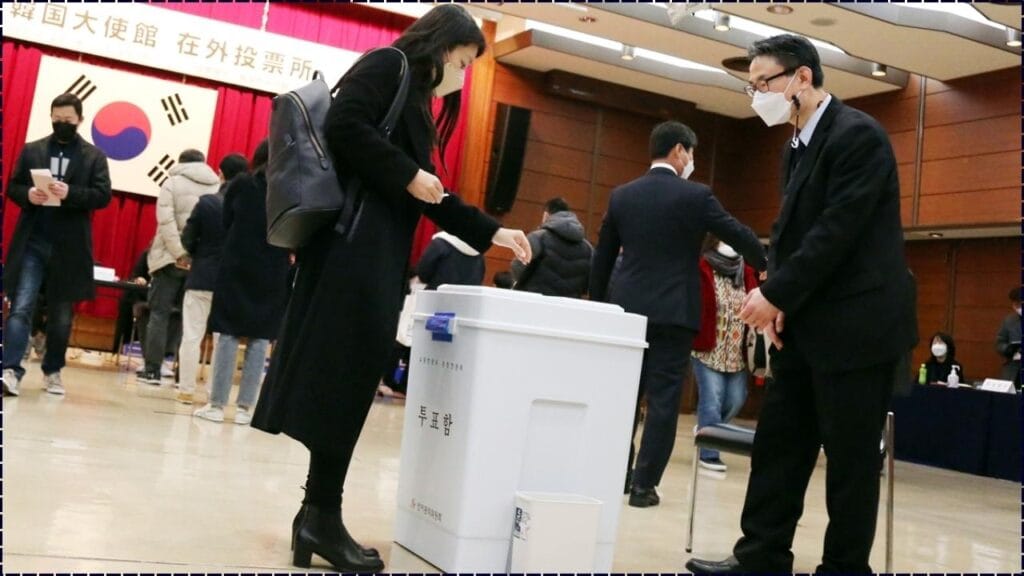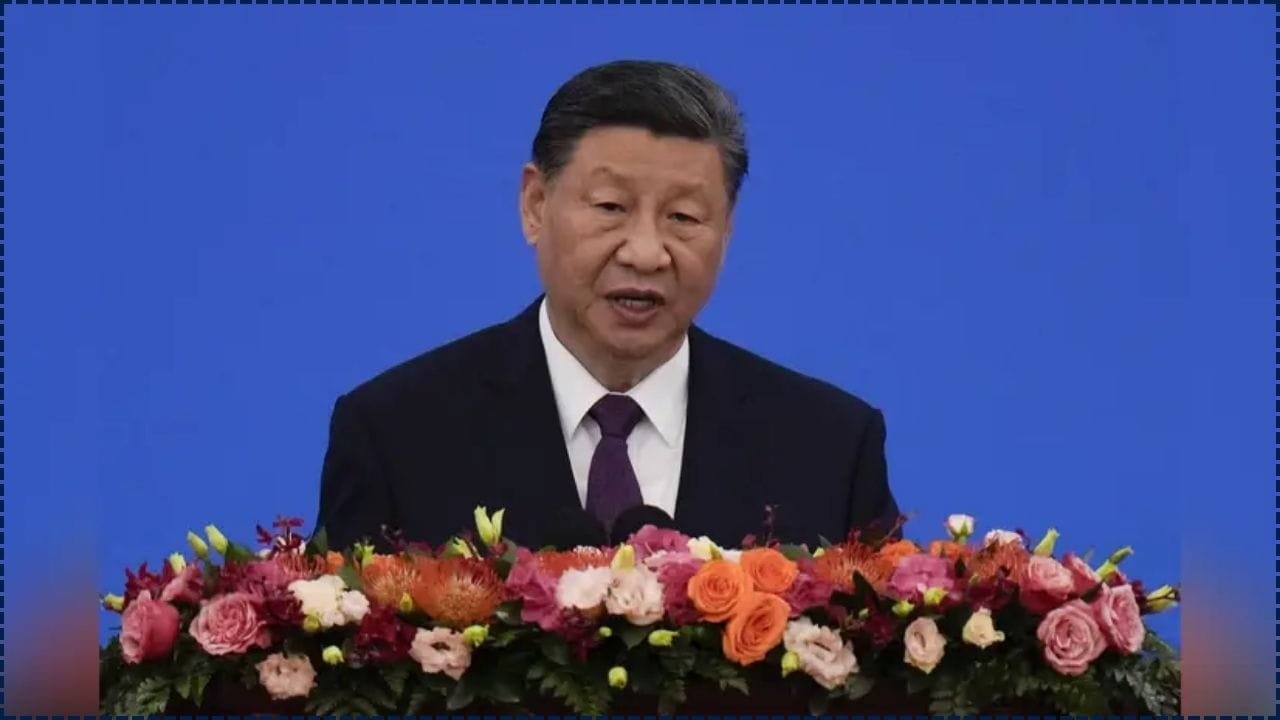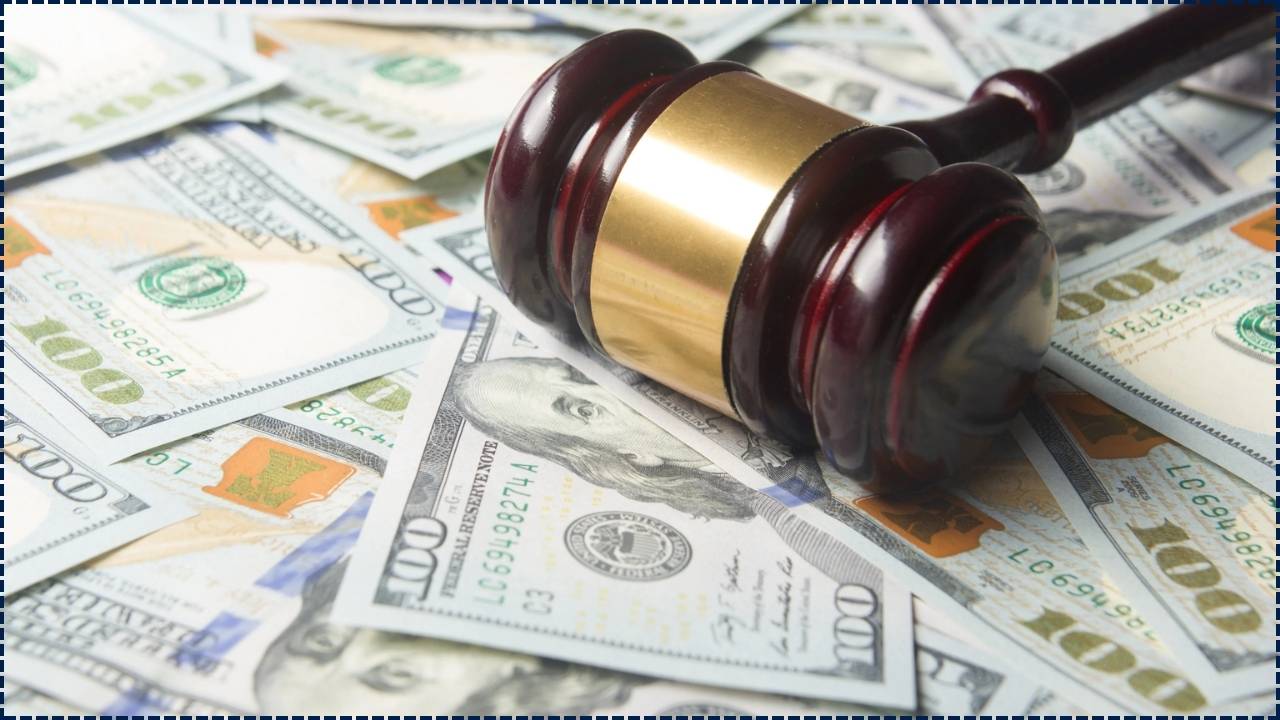Record early voting in South Korea signals hunger for change as the presidential race hits full throttle ahead of the snap election on June 3, 2025. With citizens showing up in unprecedented numbers, it’s clear: the people of South Korea are eager for new leadership and fresh direction. The numbers don’t lie. By late Thursday morning, a whopping 7.00% of the nation’s 44.39 million eligible voters had already cast ballots. That’s the highest early turnout ever recorded in a South Korean presidential race.

This surge in participation comes in the wake of political chaos that rocked the nation. Former President Yoon Suk Yeol was removed from office after attempting to impose martial law, triggering this unexpected but critical election. Now, voters are stepping up to make sure their voices are heard loud and clear.
Record Early Voting in South Korea
| Category | Details |
|---|---|
| Election Date | June 3, 2025 |
| Eligible Voters | 44.39 million |
| Early Turnout Rate | 7.00% (record high) |
| Reason for Snap Election | Impeachment of Yoon Suk Yeol |
| Top Candidates | Lee Jae-myung, Kim Moon-soo, Lee Jun-seok |
| Economic Outlook | BOK projects 0.8% GDP growth for 2025 |
| Major Campaign Issues | Climate, gender equity, economic reform |
| Official Resource | NEC Korea |
South Korea is heading to the polls in record numbers, and that sends a powerful message: people want change, and they want it now. With early voting at an all-time high and public sentiment boiling over from recent scandals, this election could reshape the nation’s political and economic direction for a decade to come.
Whether it’s Lee Jae-myung’s progressive push, Kim Moon-soo’s conservative comeback, or Lee Jun-seok’s fresh start, one thing’s clear: South Koreans are fired up and ready to vote. This is more than just a choice of leader — it’s a declaration of who they are as a people and what kind of nation they want to build.
Why This Election Matters
This isn’t just another presidential contest. It’s a referendum on South Korea’s future. After the constitutional and moral crisis involving Yoon Suk Yeol’s failed power grab, many South Koreans see this election as a chance to hit reset. The unusually high early turnout reflects a population determined not to be passive. It’s a democratic awakening, fueled by frustration but guided by hope.
The vote will directly influence national strategies on climate change, economic reform, education, and global diplomacy. It’s more than a transfer of power — it’s a moment of national self-reflection. Globally, observers are keeping close tabs, as South Korea’s political shift could ripple through Asia and beyond.
Meet the Front-Runners
Lee Jae-myung (Democratic Party)
Lee leads the race with 49% support. He’s a reformer known for pushing bold ideas like creating a Ministry of Climate and Energy and restructuring the Ministry of Gender Equality. Lee brings a progressive platform centered around justice, innovation, and economic equity. He appeals strongly to younger voters and urban populations, who see him as a symbol of modernization.
Lee also supports universal basic income trials, investment in clean tech, and stronger diplomatic ties with Japan and Southeast Asia. His critics argue he’s overly idealistic, but supporters say that’s exactly what the country needs after years of political conservatism.
Kim Moon-soo (People Power Party)
Holding steady at 35%, Kim is a veteran politician pushing for traditional values, economic revitalization, and security-focused governance. His base includes older voters and business leaders who view him as a stabilizing force. He emphasizes a return to order and economic pragmatism, promoting pro-business policies, deregulation, and cautious foreign diplomacy.
Kim wants to rebuild confidence in South Korea’s global partnerships without compromising national sovereignty. He also supports expanded defense funding amid ongoing tension with North Korea.
Lee Jun-seok (New Reform Party)
Young, tech-savvy, and pulling 11% support, Lee is appealing to disenchanted millennials and Gen Z. His platform? Government transparency, digital infrastructure, and youth employment. He’s pushing for online voting trials, cryptocurrency regulation, and greater tech-sector investment.
Though still a long shot, Lee’s surge in popularity has stirred debates on the generational shift in South Korea’s electorate. He’s proof that digital natives want a louder voice in how their country is run.
The Economic Landscape
South Korea’s economy has taken some hits. The Bank of Korea just trimmed its 2025 growth forecast from 1.5% to 0.8%. That’s a big drop, signaling waning consumer confidence and slower export performance. Inflation, housing prices, and youth unemployment are top concerns among voters, especially those in urban centers.
Candidates are proposing varied solutions:
- Lee Jae-myung wants to overhaul energy policy, aiming for net-zero emissions by 2040 and state-supported startup ecosystems.
- Kim Moon-soo is advocating for tax relief for small businesses and major investment in rural economic development.
- Lee Jun-seok proposes coding education in all public schools and expansion of 5G tech to rural communities.
Record Early Voting in South Korea Vote: A Quick Guide
Early voting runs from May 29-30, 6:00 a.m. to 6:00 p.m., at 3,568 polling stations nationwide. All you need is a valid ID. Anyone unable to vote on June 3 should take advantage of early voting for maximum flexibility. International citizens residing in Korea can also vote at consular offices under specific guidelines.
To ensure accessibility, mobile and drive-thru voting are available in some districts, especially for the elderly and disabled. Government outreach teams are using SMS alerts and social media to remind voters of key deadlines.
Real Talk: Why Early Turnout Is a Game-Changer
High early turnout isn’t just a stat — it’s a signal. It shows citizens are engaged, informed, and motivated. Historically, high turnout correlates with significant political shifts. If this pattern continues, the 2025 election may mark a seismic change in Korean politics.
It also helps reduce bottlenecks on election day and ensures better representation of working-class citizens, caregivers, and the mobility-impaired. Plus, it reinforces the importance of civic participation in preserving democratic values.
What the U.S. and Allies Should Watch
For Americans following foreign policy, this election is a pivotal moment. South Korea is a key U.S. ally in the Indo-Pacific region, especially when it comes to deterring North Korea, maintaining tech trade, and hosting joint military exercises.
A new administration could influence joint projects, semiconductor trade, and even China policy. Allies like Japan, Australia, and the Philippines are also watching closely, knowing that a leadership shift in Seoul will affect regional strategies.
FAQs
Q1: Why was President Yoon removed from office?
A: He attempted to impose martial law during political unrest, triggering impeachment by the National Assembly and massive protests.
Q2: Is early voting secure?
A: Yes. South Korea uses biometric ID verification, sealed ballot chains, and real-time transparency updates monitored by party observers.
Q3: Who can vote early?
A: Any registered voter aged 18 and above with ID can vote early at designated polling stations. Expats and dual citizens may have special eligibility rules.
Q4: Where can I find more information?
A: Visit the National Election Commission for polling stations, voter eligibility, and official updates.
Q5: When are results expected?
A: Initial results are expected by the evening of June 3. Official confirmation and certification will follow within 3-5 business days.












